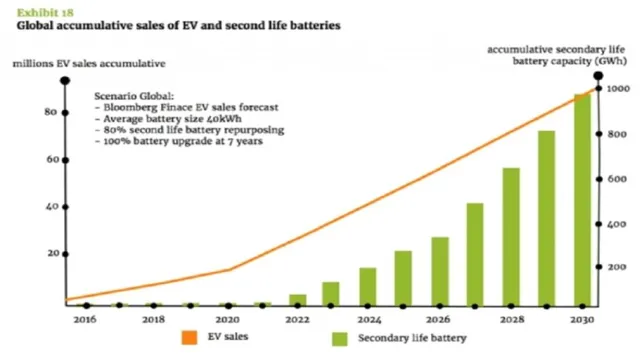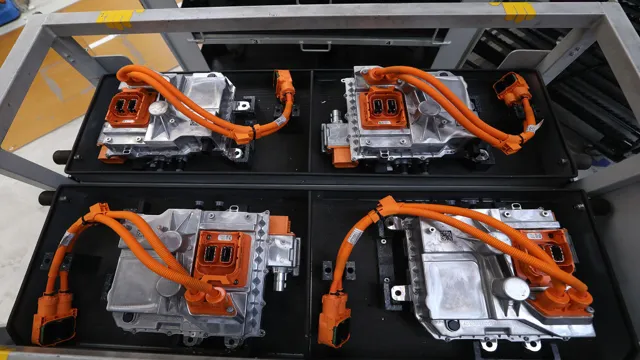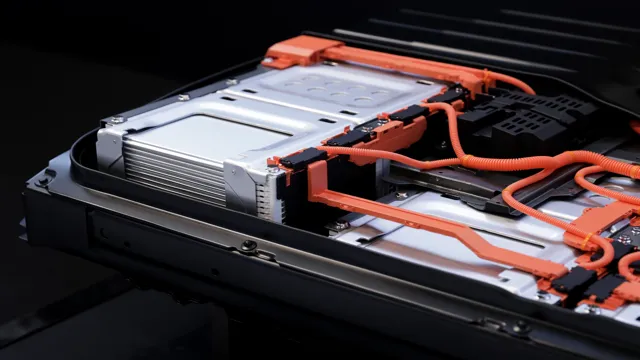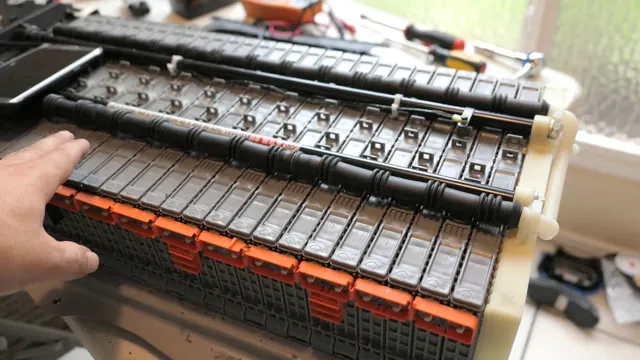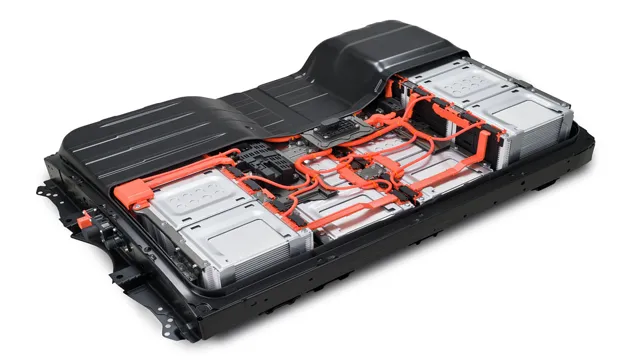Uncovering the Dirty Truths of Electric Car Battery Mining: Exploring the Environmental Impact and Pollution
As electric vehicles become more popular, there has been increasing concern about the environmental impact of the cars’ batteries. While electric cars don’t produce tailpipe emissions, the mining of the materials needed for batteries can actually be extremely harmful to both the environment and human health. The mining process involves extracting materials like lithium, cobalt, and nickel from the earth, which can release large amounts of air and water pollution.
Additionally, the disposal of old batteries can also create environmental problems. With the push towards a greener future, it’s important to consider not only the benefits of electric cars but also the potential negative consequences. So, what’s the solution? Is there a way to develop electric cars without causing harm to the environment? As consumers, how can we make more environmentally conscious choices when it comes to transportation? Let’s explore these questions and more in this blog post about electric car battery mining pollution.
The Environmental Impact of Electric Car Battery Mining
Electric car battery mining pollution has become a major concern for environmentalists. Mining for materials such as lithium, cobalt, and nickel is a crucial step in the production of electric car batteries but it also has a significant negative impact on the environment. The mining process involves the destruction of natural habitats, the release of toxic chemicals into the air and water, and increased carbon emissions.
Additionally, the disposal of used electric car batteries can also be harmful to the environment. However, efforts are being made to minimize the environmental impact of electric car battery production by promoting sustainable mining practices and developing more efficient recycling methods. The hope is that the growth of the electric car industry will lead to a cleaner and more sustainable future for all.
Exploring the Harmful Effects on Land, Water, and Air
Electric car batteries are often touted as a more environmentally-friendly option. However, the mining of materials required for these batteries can have a harmful impact on the environment. Lithium, cobalt, and nickel are all materials that are commonly used in electric car batteries and their mining can cause extensive damage to land and water sources.
This type of mining requires large amounts of water, which, in turn, can deplete local water sources. Additionally, mining can lead to toxic waste materials that contaminate both land and water. Air pollution is also a major concern with electric car battery mining, as the heavy machinery and power equipment required release significant amounts of greenhouse gases and other pollutants.
While electric cars may ultimately help reduce emissions, it is important to consider the environmental impact of their production and the sourcing of their materials.

Data on Resource Depletion and Habitat Destruction
The mining of materials required for electric car batteries has significant environmental impacts. Research highlights that the extraction of rare earth metals, cobalt, and lithium involves habitat destruction, deforestation, and water pollution. Additionally, as demand grows, resource depletion becomes a major concern.
This means that miners have to extract larger quantities of minerals, further depleting the environment. The process of mining creates an environmental footprint that is hard to ignore. However, the use of electric cars is still considered less harmful to the environment in comparison to conventional cars.
As we push toward cleaner technologies, it is crucial to address the impacts of mining electric vehicle batteries and find ways to lessen its impact on the environment.
Addressing Pollution from Electric Car Battery Production
Electric car batteries have been considered a more environmentally-friendly alternative to traditional cars. However, there is a growing concern about the pollution caused by the production of electric car batteries. Mining for the materials used in electric car batteries generates pollution and has negative impacts on the environment.
Cobalt, for example, is a commonly used material in these batteries and is often mined in countries with weak environmental protections. The mining process releases toxic chemicals into the air and water supply, leading to environmental and health impacts for local communities. Reducing the pollution associated with electric car battery production requires investing in responsible, sustainable mining practices and ensuring that regulations are in place to protect the environment and local communities.
By doing so, the benefits of electric cars can be fully realized, and we can move towards a more sustainable future.
Current Efforts to Reduce Pollution in Manufacturing Processes
Electric car battery production is a rapidly growing industry that is helping to reduce pollution from traditional gasoline-powered vehicles. However, the production process itself can lead to environmental concerns. Current efforts are underway to address these concerns and make battery production more sustainable.
One approach is to reduce the amount of energy consumed during battery production. This is being done by using renewable energy sources such as solar or wind power. Another method is to recycle and reuse materials in the manufacturing process.
By reusing materials such as lithium, cobalt, and nickel, manufacturers can reduce the amount of waste generated during production. Additionally, companies are exploring new ways to reduce toxic emissions and pollutants that are released during the manufacturing process. These efforts are critical to achieving a more sustainable future for electric car battery production and reducing the overall environmental impact of transportation.
Potential Solutions for a Cleaner Battery Production
Electric Car Battery Production Electric car battery production is a complex process that involves several stages, including material mining, processing, and manufacturing. As electric vehicles continue to gain momentum in the auto industry, there is growing concern about the environmental impact of producing the batteries that power these cars. From the mining of precious metals to the disposal of hazardous waste, every step in the battery production cycle has the potential to contribute to pollution and environmental degradation.
However, there are potential solutions on the horizon that could help address these challenges. Innovations such as closed-loop recycling systems, alternative materials, and cleaner energy sources for manufacturing could all play a role in reducing the carbon footprint of electric car battery production. It will take a concerted effort from industry leaders, policymakers, and consumers to push for these changes, but the long-term benefits for the environment and public health make it a crucial task to undertake.
Comparing the Environmental Impact to Traditional Cars
When it comes to comparing the environmental impact of electric cars to traditional vehicles, one aspect that often comes up is the production of electric car batteries. While it’s true that the production of these batteries does have an impact on the environment, it’s important to understand that this impact is much less than the ongoing emissions from fossil fuel-powered vehicles. Additionally, there are steps being taken to minimize the environmental impact of battery production, such as sourcing materials responsibly and recycling the batteries at the end of their life cycle.
Just like any other product, there is no perfect solution that will have zero impact, but electric cars and their batteries are still a much cleaner alternative to traditional cars and are a step in the right direction towards reducing pollution and protecting our planet.
The Future of Sustainable Electric Car Battery Mining and Production
While electric cars are often touted as a more sustainable alternative to gas-powered vehicles, the process of mining the raw materials used in electric car batteries can lead to its own set of pollution issues. However, there is hope for the future of sustainable electric car battery mining and production. Advances in technology and increased focus on renewable energy and sustainability have led to innovations such as using recycled materials and more sustainable mining practices.
Additionally, alternative battery chemistries such as solid-state batteries could further reduce the environmental impact of electric car battery production. While there is still work to be done, it is exciting to see progress being made towards a more sustainable future in the electric car industry.
Innovative Technologies for Responsible Battery Mining Practices
Sustainable electric car battery mining and production are crucial in reducing the environmental impact of the transportation industry. Innovative technologies are being developed to ensure responsible mining practices that prioritize the planet’s health and safety. One such technology is the use of artificial intelligence (AI) in mapping out the best areas for sustainable mining.
By collecting data on ecological factors like soil types, vegetation, and water resources, AI algorithms can identify the locations where mining can be done without harming the environment. Another technology is blockchain, which can ensure that the entire supply chain of batteries is transparent and accountable. This technology can track the origin of the raw materials, the processing, and the manufacturing, making sure that all steps are done ethically and sustainably.
These innovations are critical in achieving a future where transportation is powered by renewable energy sources, and the environment is not compromised in the process.
Investments in Sustainable and Ethical Materials Sourcing
The mining and production of electric car batteries have been a cause of concern in terms of their impact on the environment. However, the future seems bright as investments pour into sustainable and ethical materials sourcing. Many companies are now adopting better practices, such as recycling old batteries and using locally sourced materials, reducing carbon emissions in the manufacturing process, and prioritizing fair labor practices.
One significant advancement in sustainable mining is the use of geothermal energy to power mining equipment and reduce reliance on fossil fuels. Moreover, innovative technologies like blockchain are enabling transparency in the supply chain, ensuring ethical mining practices and guaranteeing the traceability of raw materials used in electric car batteries. The future of sustainable electric car battery mining and production certainly seems promising, and with continual advancements, a cleaner, and a more ethical industry is not a far-fetched reality.
Conclusion: Balancing Clean Energy with Environmental Responsibility
In the quest to reduce our dependence on fossil fuels, electric cars have emerged as a promising solution. However, the production of the batteries that power these cars comes with its own environmental costs. Mining for the metals necessary for these batteries can lead to pollution and other negative impacts on the surrounding ecosystem.
But fear not, with continued efforts towards sustainability and ethical mining practices, we can ensure that the benefits of electric cars outweigh their environmental costs. So let’s keep driving towards a cleaner, greener future while keeping our eyes on the road ahead.”
FAQs
How does mining for electric car batteries contribute to pollution?
Mining for electric car batteries involves extracting minerals such as lithium, cobalt, and nickel. The process of extraction involves releasing toxins and pollutants in the air and water, leading to pollution.
Are there any eco-friendly alternatives to mining for electric car batteries?
Yes, there are eco-friendly alternatives such as recycling used electric car batteries and developing new technologies that use alternative materials like graphene or sodium-ion.
How can electric car manufacturers reduce the environmental impact of battery mining?
Electric car manufacturers can reduce the environmental impact of battery mining by implementing sustainable mining practices, reducing the amount of minerals required per battery, and ensuring responsible disposal of used batteries.
Does using electric cars actually reduce overall pollution in the long run?
Yes, using electric cars can reduce overall pollution in the long run as they emit less greenhouse gases than traditional combustion engines. However, it is important to consider the entire lifecycle of the car, including battery production and disposal.
